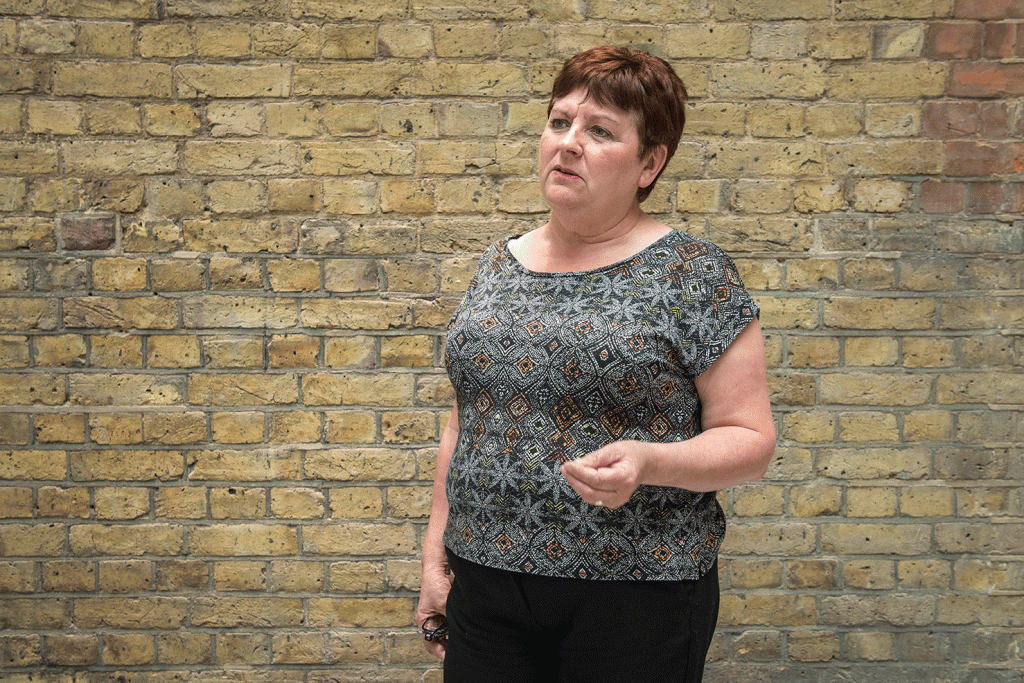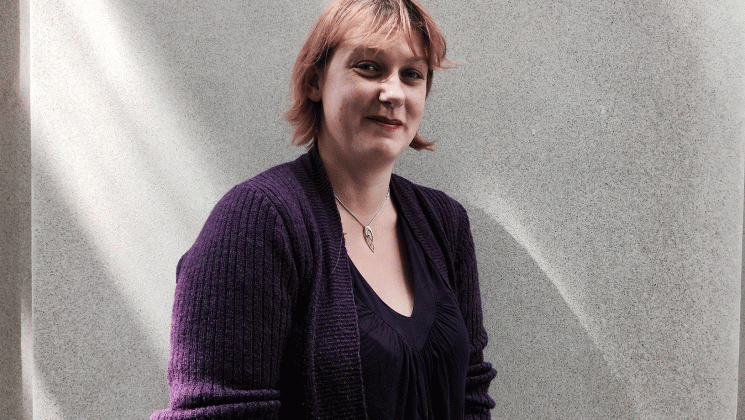Imagine struggling to make the decision to go on strike … and being given an ASBO.
Or tweeting your plan to bring bacon sandwiches to your colleagues on a picket line … and then watching as the union is sued for thousands of pounds.
Or working in a job where your skills can mean life or death to the public … and seeing agency staff being drafted in to cover you on strike.
Sounds excessive? Maybe even a bit dangerous?
Well, these are real plans that the government is currently pushing through as part of the Trade Union Bill in Great Britain.
The bill will severely restrict working people’s ability to defend their jobs and pay and to campaign for a fairer society.
UNISON is campaigning against it because we believe MPs need to focus on the real problems our country faces and work with everyone, including trade unions, to solve them, rather than taking away people’s right to be supported at work.
The proposals on striking go too far.
- Workers who go on strike and take part in a picket line are threatened with ASBOs.
- Unions would have to give two week’s notice of any plans for protests associated with their industrial action: even having to give two weeks’ notice of what might be written on websites, Facebook and Twitter.
- Agency staff could be brought in to cover long-term, skilled workers if they go on strike.
General secretary Dave Prentis is urging all members to get involved in the campaign:
“These unfair changes will make it much harder for nurses, teaching assistants, midwives and other workers to ever strike for a pay rise or challenge the behaviour of bad employers.
“Strikes are rare and the decision to lose a day’s pay is never an easy one – especially for public sector workers who have suffered many years of pay restraint.
“When unions win a pay rise or safer working conditions for their members, everyone in the workplace gets to benefit.
That’s why I’m urging all UNISON members to get involved in our campaign. It’s not just about their own jobs, it’s about the society we all live in.”
We talked to our members about how they felt about these proposals, and what would drive them to go on strike. They told us that striking was never something that they wanted to do, but sometimes they needed to as a last resort. They also told us how worried they were about the impact agency workers doing their jobs could have on the services they provide
Here are some of their stories:
- Cathy Parker is a care finance officer
- Debi Potter is a police control room operator
- Alyson is a midday assistant in a special school
- Alastair Long is an ambulance worker from Northern Ireland
- Sarah Ibbotson works for City of York Council as a business support person
- Russell Kennedy is a pharmacy assistant at Basildon Hospital
- Margaret McKee is from Royal Victoria Hospital in Belfast
- Chelsea Skervin works for the National Probation Service
Cathy Parker is a care finance officer

Cathy Parker, a care finance officer
“My job involves visiting clients (or their representatives), who are receiving or going to receive a service from social services – for example, homecare or residential care – in order to gather information about their finances. I then use this information to work out how much they have to pay towards their care.
“I decided to work in this area because I like meeting people and I get a lot of satisfaction from helping to guide them through quite a complicated process at quite a stressful time.
“The best thing about my job is feeling that I have taken the pressure off, made things clear and removed some of the stress and anxiety for people.
“I am constantly under pressure due to the volume of work and time constraints. Priorities change from one moment to the next so the job can be very stressful.
“The government wants to make it legal for agency workers to cover my role if I was to ever go on strike. The main reason I do not think this is a good idea is because it takes months – if not years – to learn my role. I have been working in this section for 21 years and I’m still learning. I have to follow complex procedures and abide by government legislation to ensure the job is done properly, and these constantly change.
“Another reason I don’t think this is a good idea is because mistakes can easily be made which can cause huge problems and take ages to put right.
“I think this will have a negative impact on people who use the service I provide because they could be given the wrong information and be overcharged for their care.
“I think this will make the service I provide unsafe because I deal with some of the most vulnerable people in society – people who are disabled and very often elderly.
“In general, I do not think the Trade Union Bill is a good thing because employers will be taking away even more of our rights and public service employees are already struggling in so many areas. I earn less now than when I started doing the job 21 years ago, mainly due to restructuring and pay freezes. I feel that employers will see us as instantly replaceable and not value our expertise and experience. We will have even less ways to protect our rights.”
Debi Potter is a police control room operator

Debi Potter is a police control room operator
“I went on strike over pensions – we had to come out properly and visit different picket lines across the forces area.
“I never thought I’d go on strike. But I’d signed up for a particular pension that was being eroded without my permission.
“You don’t go into a shop and buy something and then get told several years later that you have to pay more.”
Alyson is a midday assistant in a special school
“My job involves looking after and feeding children with special needs at lunchtime for an hour and a half in term time.
“I love this kind of work because I feel valued in my employment and the school couldn’t do it without us.
“The best part of my job is the fact that these children need us. They ask us for nothing except to be fed and treated with respect and dignity. They deserve that much.”
“I can’t think of a ‘worst’ day in my three-and-a-half years, but sometimes it can be challenging with some children having autism and behaviour issues.
“I don’t agree with agency workers being drafted in if I go on strike because of safety issues. We have to be trained in hoisting disabled children, and each child has a feeding programme that must be adhered too. A lot of the children I work with wear pads which have to be changed. There is a lot physical contact, so therefore we all have to be CRB checked – can we say the same for all agency workers?
“Consistency is also important to autistic children. They don’t cope well with change so unfamiliar people coming in for a day here and there is not a good idea.
“I also feel that my right to strike is an important one. There is no point going on strike if it dosen’t affect anyone. That’s the idea, isn’t it? So filling our places with agency workers defeats the object.
“We don’t get a lot of pay for the work we do. And it might only be an hour and a half a day but we never stop the whole time.
“Yes, we get all the school holidays, which is nice, but what people don’t realise is, we don’t get paid for them: we only earn in term time.”
Alastair Long is an ambulance worker from Northern Ireland

Alastair Long is an ambulance worker from Northern Ireland
“We have a live ballot at the moment. It’s in relation to cuts, pay, terms and conditions.
“It’s been a last resort. We’ve been given a worse deal than the rest of the UK – although other nations haven’t done well.”
Sarah Ibbotson works for City of York Council as a business support person

Sarah Ibbotson works for City of York Council as a business support perso
“I did go on strike last year – it’s the first time I’ve gone on strike with UNISON, and I went out predominantly because I’ve seen huge changes across the sector.
“What I’ve seen is just an onslaught: reduction in services, reduction in staff; increased work loads, increased work pressure. Bullying, harassment … just huge impacts across massive areas of employment.
“And then the attacks on our terms and conditions.
“It’s a difficult thing to do, striking – especially when you realise it’ll impact on frontline services.
“It’s an unpaid day; your employer is automatically not very pleased with you.
“There was lots of support in York. There was a march through the city centre, and I appreciate that because there wasn’t that kind of support everywhere.
“It was upsetting when people crossed the picket lines – and some people did – and while everybody wanted to negotiate for better terms and conditions, not everybody came.
“But I think, from a democratic point of view, it was my right to stand there and say: ‘No, I don’t agree with all these changes you’re imposing.’”
Russell Kennedy is a pharmacy assistant at Basildon Hospital
“My job involves providing clinical wards with pharmacy items such as medication.
“I’m proud to be an NHS employee and value the fact that I’m providing a vital service to the public. A service that we may all one day rely on.
“It can be a high-pressure environment, especially when we are short staffed, as is increasingly happening.
“The dispatch of medication to patients can’t be put off until tomorrow and accuracy when packing and dispatching medicines to patients is of paramount importance.
“Experience is vital and if the government wants to make it legal for agency workers to cover my role if I was to ever go on strike, the possibility of mistakes, which could lead to serious consequences, is too big a risk to take. Afterall, would you want your loved ones to be on the receiving end of inexperienced staff not sufficiently used to the working environment of a particular hospital or department?
“Another reason I don’t think this is a good idea is it will simply lead to the further undermining of working conditions for those staff that the government insist that they value. Heaping more and more pressure upon NHS staff to comply with worsening working conditions is not something I believe the public would support, especially if they are the patient adversely affected.
“I think this will have a negative impact on people who use the service because it will have a demoralising effect on staff who have already seen years of frozen pay rates and alterations to long-standing pension arrangements.
“This could make the service I and others provide unsafe because stress levels and sickness levels caused by that stress are almost bound to increase. Would you want to be a patient being treated and cared for by highly stressed demoralised staff?
“In general I do not think the trade union bill is a good thing because it is a flagrant attack on a basic principle. A basic principle that allows those who have explored every other avenue to withdraw their labour when and only when absolutely necessary.
“Workers do not take strike action at the drop of a hat. It is often a painful decision, but if strike action is effectively to be taken away, ultimately it’s not just NHS staff, but NHS patients who will suffer.”
Margaret McKee is from Royal Victoria Hospital in Belfast

Margaret McKee works at Royal Victoria Hospital in Belfast
“We went out for cuts and pensions. It was a case of ‘enough is enough’. We had to make that statement.
“I felt very proud – I’m a low-paid worker and I was very proud to stand with my colleagues at the gates of the hospital.
“We could get more support from the public. The people at the gates – they’re not just workers, they’re users of the service.”
Chelsea Skervin works for the National Probation Service

Chelsea Skervin works for the national probation service
“I went on strike in July: it was a two-hour strike because the pay offer was zero per cent.
“I thought it was important to go on strike. How shall I put it? Knowing that you’ve been part and parcel of the process that made something come out that benefitted everybody is a good emotional and moral feeling.
“There are lots of benefits to going on strike and saying ‘we’re not going to be stood upon.’
“People complain and moan about lots of things: well if you stand firm for what you believe in, then that’s about your mental, personal well being, and to know that you care.
“The fact of the matter is, I am worth more than zero per cent. My work that I do is worth more than zero per cent. The country as a whole benefits more than zero per cent.
“If we didn’t have probation: if we had certain people roaming the street unsupervised … what would happen to the potential victims, the victims that have gone before?
“It was a whole bigger message for me.”

